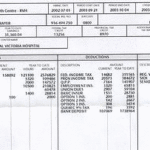
Who knew 20 years ago how apparently hard it is to account for money paid to you? Even if accounting for money was your business?
Today’s raft of mortgage accounting issues were not ones I foresaw when I became a bankruptcy lawyer.
Yet every day we encounter cases where the foreclosure notice follows the “all current” filing at the close of a Chapter 13 case.
The addition of Section 524(i) to the Bankruptcy Code in 2005 at least recognized the problem of mortgage accounting in a world where mortgages change hands like business cards. The subsection makes willful failure to properly credit payments received under the plan a discharge violation.
Rule 3002.1 followed up with procedures to make post petition events vis a vis a home mortgage transparent, and created a mechanism for an end-of-case status check.
What happens when sequential transfers of mortgages, or the right to service those mortgages, tangle?
Three servicers in
Bivens v. Newrez LLC , 625 B.R. 843 (Bankr. M.D.N.C. Mar. 25, 2021) neatly confronts those issues and the attempt of a long-gone note holder to escape liability.
In Bivens, Citimortage held the mortgage at the commencement of the Chapter 13 case. Two years into the Chapter 13, Citimortgage assigned the claim to Ditech. Seven months later, Ditech assigned it to Shellpoint Mortgage Servicing;
At case end, Shellpoint responded to the trustee’s Notice of Final Cure Payment in February, 2020 that both the default was cured and the Debtor was current on post petition payments. Debtor got her discharge on June 1, 2020, and got the Notice of Default from Shellpoint on June 2!
Debtor’s adversary proceeding followed on September 11, 2020 against Citimortgage and Shellpoint.
Homeowner’s theories of the case
Ms. Bivens alleged that defendants had violated
- the discharge;
- the automatic stay; and
- R. 3002.1.
She asserted that defendants misapplied payments between the prepetition arrearages and the ongoing mortgage payments; applied payments to the wrong month; and assessed fees and charges without filing the appropriate R. 3002.1 notice.
In response, Citimortgage filed a Motion to Dismiss for failure to state a claim. At the risk of deflating the suspense, Citimortgage lost the motion on all counts.
Decision ladened with gems
The six pages of this decision are laden with issues all too familiar to Chapter 13 practitioners, accompaned by a clear discussion of the law applicable. But most intriguing is that the entire decision analyzes the claims against a mortgage holder who had been out of the picture for 3 years before its successor filed a post discharge notice of default utterly at odds with its R. 3002.1 response.
Discharge violation
Pared down, Section (i) of 524 reads
The willful failure of a creditor to credit payments received under a plan confirmed under this title … in the manner required by the plan (including crediting the amounts required under the plan), shall constitute a violation of an injunction under subsection (a)(2) if the act of the creditor to collect and failure to credit payments in the manner required by the plan caused material injury to the debtor.
The Bivens court cited Williams, 572 BR 682 for the proposition that the transfer of the loan to another servicer with records showing incorrect payments could itself be a violation of the discharge. And note that it’s a violation of a discharge still years down the road.
Material injury will be met in virtually every case involving a secured creditor, said the court, because it almost always results in a higher loan balance and a larger lien against the property. Even, apparently, when foreclosure is averted.
Stay violation
Looking at the culpability of Citimortgage, who had transferred the loan four years before the events at the end of the case, the Bivens court found that the transfer of the loan with erroneous information to an assignee was a communication within the ambit of 362. The court contrasted the transfer of the erroneous payment records to another entity with communications internal to the actor, which would not violate the stay.
R. 3002.1
Debtor alleged that Citimortgage had assessed an array of fees to the loan account without providing the notice required under R. 3002.1(c). The only defense to a request for sanctions under subsection (i) of the Rule is to show that the omission was justified or harmless, citing Collier P. 3002.1.03. Held: Citimortgage’s alleged failure to provide notice deprived Debtor of an opportunity to challenge those fees under R. 3002.1(e).
So, Citibank could not distance itself from the troubles imposed on its borrower.
Claim transfers in practice
Bivens highlights the difficulty of pinning down mortgage accounting mistakes well after the claim is transferred. The new transferee knows only what the old servicer says, and the old transferor is only obligated to respond to RESPA Requests for Information for a year after the transfer.
So, my thought is to make a RESPA RFI anytime the servicing of a loan changes hands. Flush out problems at the earliest moment, so they don’t fester and erupt at case end.
More
Between the 1st and the 15th: is mortgage in default







